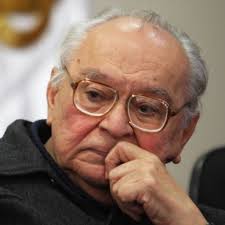Gustavo Gutierrez once said, “Those who change the course of history are usually those who pose a new set of questions rather than those who offer solutions.” Gutierrez, born in Lima in 1928, is a Peruvian Dominican priest who is regarded as the founder of Liberation Theology. Those are powerful words and true.
 We often don’t welcome people who ‘pose questions’ as they are often labeled the ‘trouble-makers’, the ‘mavericks’ and the ‘rebels’. We have been conditioned to get rid of them, ignore them or perhaps ‘manage’ them. They often make us feel uncomfortable and they are not afraid to challenge the status quo, the conventional wisdom and the formulae that to this point, has brought success. They don’t subscribe to the old cliché, ‘if it isn’t broken, don’t fix it’ and are happy to ask, challenge and often times, comfortable with being proven wrong. For them ‘asking the question’ is what is important; find the solution – that is entirely another matter, conversation and perhaps, process.
We often don’t welcome people who ‘pose questions’ as they are often labeled the ‘trouble-makers’, the ‘mavericks’ and the ‘rebels’. We have been conditioned to get rid of them, ignore them or perhaps ‘manage’ them. They often make us feel uncomfortable and they are not afraid to challenge the status quo, the conventional wisdom and the formulae that to this point, has brought success. They don’t subscribe to the old cliché, ‘if it isn’t broken, don’t fix it’ and are happy to ask, challenge and often times, comfortable with being proven wrong. For them ‘asking the question’ is what is important; find the solution – that is entirely another matter, conversation and perhaps, process.
If the truth be told, we have placed a far higher value on the ‘solution’ than on the question. We have been repeatedly told, “don’t bring me a problem; bring me a solution”. We are measured, valued and rewarded on our solutions rather that on the questions we ask.
Yet history turns on the question. If you are fortunate enough to have such a person in your team, hang onto them and understand that their question will be what enables you to find a ‘better way’, a breakthrough, a solution. The right question is to the future what the ‘running shoe’ is to the runner; it is the start that propels the journey and enables the exploration.
So, here would be an interesting question to ask: at your last meeting (be that board, executive, management or whatever), how many questions were asked?
Smart leaders understand the importance of questions and do their utmost to create the kind of environment that invites questions. As you track the number (and quality) of questions being asked in your meetings, you will either have cause for celebration or concern. If it is the former, then guard the context and conditions that gives rise to questions being asked; if it is the latter, think carefully about how you might evoke questions and ask what role you are playing in the fact that questions are not surfacing. Be sure, they are there…getting them to the surface is what matters!
And one final question for you, the Leader: when last did you ask a question?

